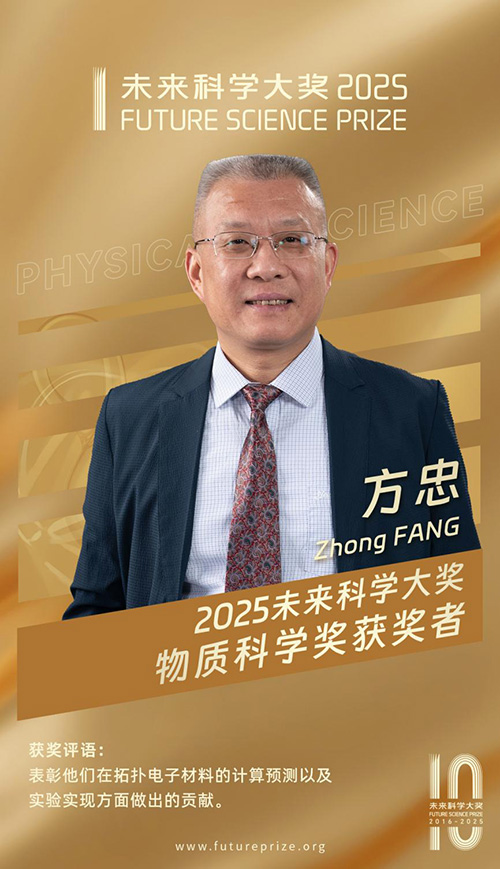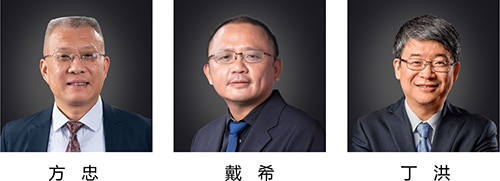Academician Zhong Fang Honored with 2025 Future Science Prize
Date:06-08-2025 Print
The 2025 Future Science Prize was announced on the morning of August 6. The "Prize in Physical Science" was awarded to Academician Zhong Fang from the Institute of Physics (IOP), Chinese Academy of Sciences (CAS); Professor Xi Dai from the Hong Kong University of Science and Technology; and Academician Hong Ding from the Li Chien-Shiung Institute, Shanghai Jiao Tong University, in recognition of their contributions to the computational prediction and experimental realization of topological electronic materials.
This scientific achievement originated from collaborations among the three scientists during their time working together at IOP.

The discovery of topological electronic materials is regarded as one of the most groundbreaking advances in condensed matter physics in recent years. These materials exhibit nontrivial topological properties in their bulk electronic band structures, giving rise to surface conducting states with extremely high stability.
By bridging the abstract mathematical beauty of topology with practical functionality in electronic materials, topological materials have opened up broad prospects for applications in diverse fields such as spintronics, quantum computing, and energy technologies.

While condensed matter theory has predicted a variety of topological band structures—often using idealized "toy" models—discovering such structures in real materials remains extremely challenging, akin to finding a needle in a haystack. Zhong Fang and Xi Dai developed a comprehensive suite of computational methods that enabled them to pioneer the prediction of a series of topological materials, including topological insulators, quantum anomalous Hall materials, and Weyl semimetals.
At the same time, Hong Ding played a pivotal role in transforming these theoretical predictions into experimental reality. By innovatively applying angle-resolved photoemission spectroscopy (ARPES), he experimentally confirmed, for the first time, the existence of Weyl fermions in the semimetal materials previously predicted by Zhong Fang and Xi Dai. Their groundbreaking methodologies have since been widely adopted by scientists around the world.
The Future Science Prize was established in 2016 through a joint initiative by a group of renowned scientists and entrepreneurs. The prize recognizes original, fundamental scientific research and honors scientists—regardless of nationality—who have achieved outstanding scientific results within mainland China, Hong Kong, Macao, and Taiwan.
Since its inception in 2016, the prize has recognized 46 laureates, all of whom are distinguished researchers in fields such as life sciences, physics, chemistry, mathematics, and computer science. Their work is characterized by exceptional originality and significant international impact.
Currently, the Future Science Prize comprises three categories: Prize in Life Science, Prize in Physical Science, Prize in Mathematics and Computer Science.
Source: Future Science Prize


